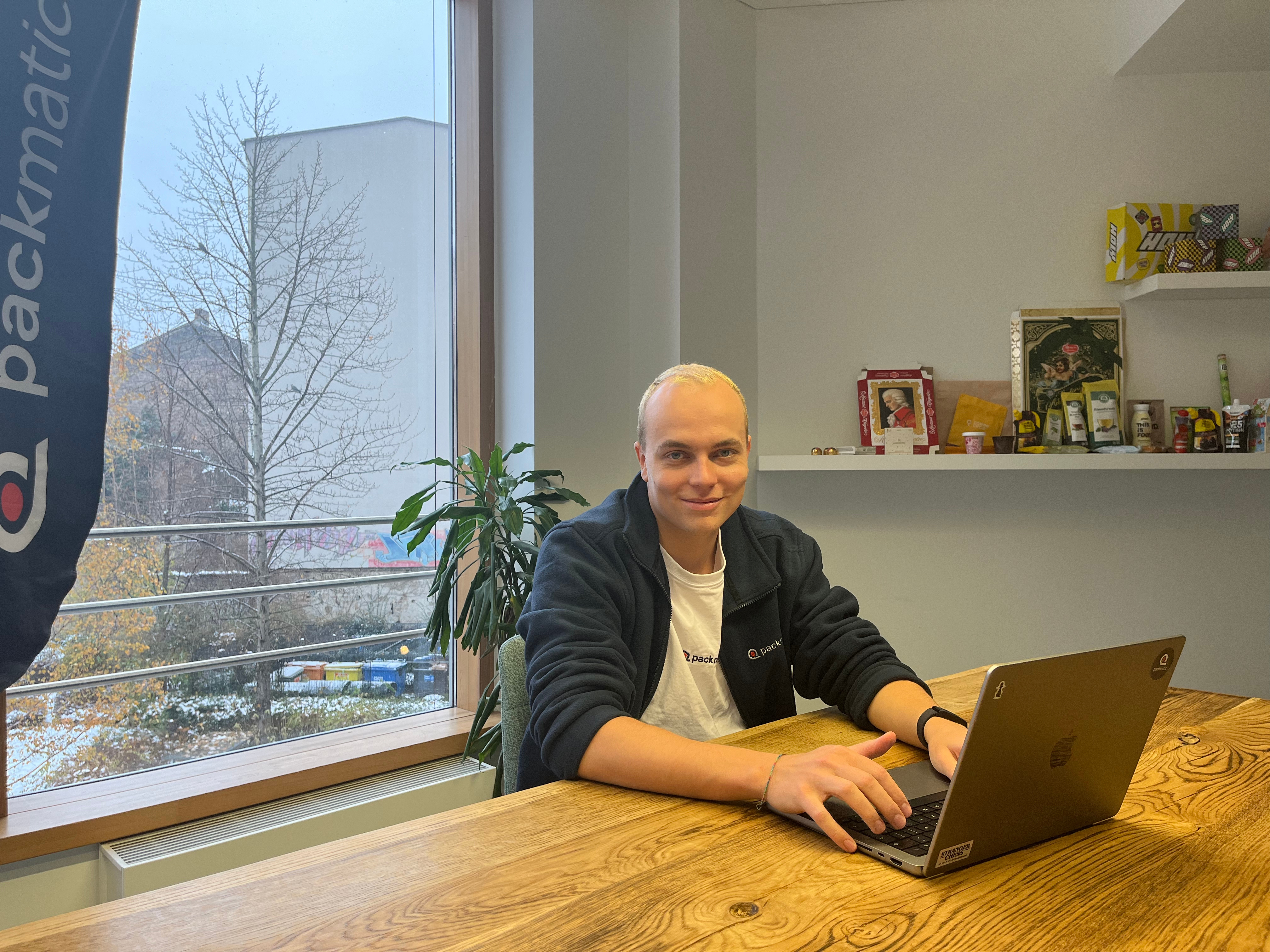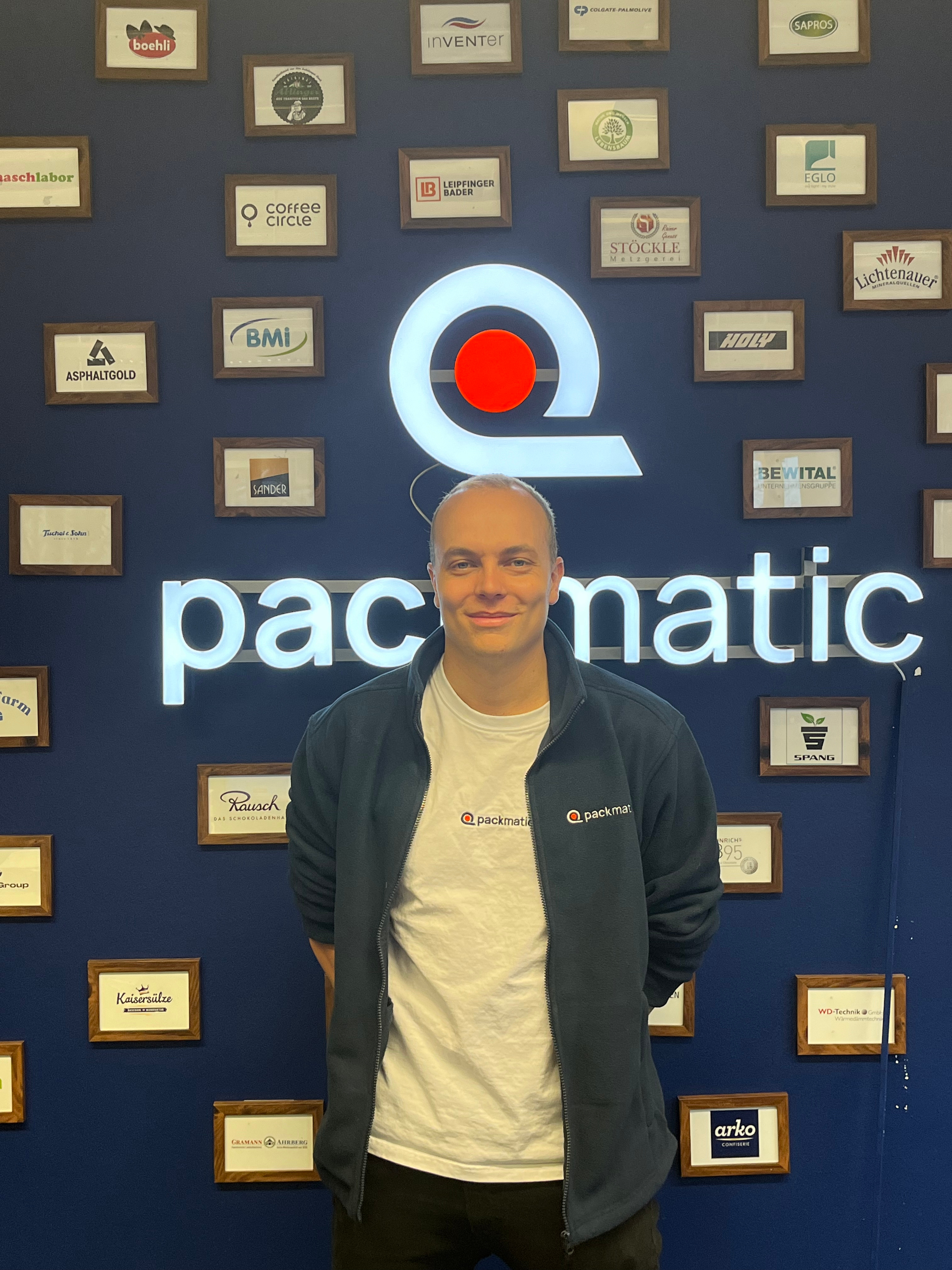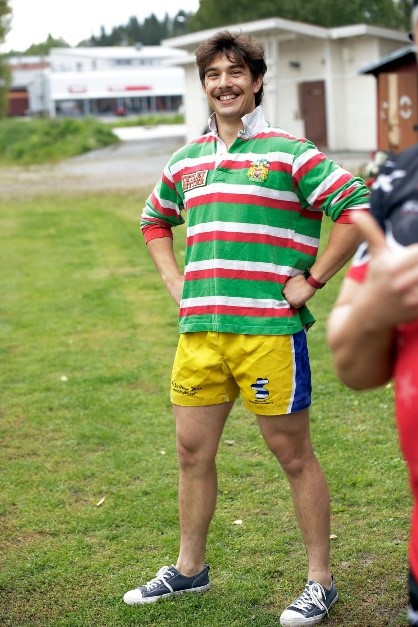Entrepreneurship 101: how to package that startup idea, quite literally
SBE alumnus Paul Schraven reflects on his journey after Maastricht University School of Business and Economics (SBE). After a stint in management consulting, he co-founded SparkSupply in Berlin, connecting students to startups. Shifting away from this model, he worked remotely for a US startup, pursued an Entrepreneurship-focused Master’s, and eventually co-founded Packmatic. The company, focused on sustainability and digitization in the packaging industry, is currently in the middle of its Series A, with a team of approximately 35 members.

Unveiling the Transition: From SBE to Packmatic
I just realized that my time at Maastricht University School of Business and Economics (SBE) ended more than 8 years ago now – time really does fly . During my studies, I was already quite curious about startups, however, ended up in management consulting at Capgemini Invent. Unfortunately, it wasn’t for me – I felt it was too hierarchical, political, and lacking direct impact. So, I moved to Berlin with Oscar and Jan (SBE classmates) to co-found our first startup, SparkSupply. Here, we connected students to startups for remote jobs next to their university, helping them make money on the side and increase the startup exposure for Maastricht students. However, as time passed, we realized that such a non-digital, agency-based model was not what we wanted to do in the long term. While my co-founders went back to do their Masters, I decided to travel the world and work remotely from Asia and Portugal for a US startup focused on project and product management.
After a year or so, I felt the pull again to do something with more ownership, to work towards founding another company. Through a friend, I heard about an Entrepreneurship-focused Master’s at WHU, a university popular in the German startup ecosystem with ties to successful startups, angel investors, and venture capital funds. For the next 18 months, after completing my studies, I built and invested in ventures as part of my role at MVP Factory in Berlin, which helped me develop the necessary skills to once again found my own company thereafter.
Via a common friend, I met my current co-founders, Matthias and Jonas, and the rest is history. We’ve been building Packmatic to bring sustainability and digitization to the huge (150bn in Europe alone) packaging industry by building a digital marketplace and various SaaS products. We’ve grown our team to roughly 35 like-minded builders, and this is just the beginning; we’re in the middle of our Series A, which will be announced soon!
Paul's biggest learnings from his journey
Coming into the startup world, I had three major misconceptions:
Firstly, I used to think that founding a startup means spending most of your time on strategy and leadership. In reality, our work as founders is very hands-on. Most of our day, we closely work on the problems at hand. There is a saying, “8 to 5 is for running the business, the evenings are for growing it”, and I think it’s quite true, especially for the first couple of years as a founder.
Secondly, I strongly believed that the more capital you raise and the higher your valuation, the better. Now, I understand that raising capital is a tool. You are giving away ownership of your company and getting money in return. No one is doing you any favors – it’s a business transaction, like any other. Likewise, valuations mean nothing until you sell your company and/or reach profitability. In fact, having a high valuation too early can break your neck entirely – this happened to a lot of startups in Berlin in the last three years, where it was impossible to meet the high expectations coupled with the high valuations in a time of economic downturn.
Lastly, in my view, the average age at a startup was mid-twenties, and everyone was best buddies. However, our workforce is very mixed, combining drive and experience from different generations, genders, and nationalities. We like to have fun together, but our work environment focused on professionalism, productivity, trust, and humility.
The joys of the entrepreneurial journey
Being able to solve actual problems every day, and to do it the way I want to. I think it’s often overlooked how motivating it can be when you truly own a problem yourself, so that’s something we promote heavily throughout our company.
Overcoming roadblocks and overcoming stagnation
I wouldn’t really call it a roadblock, but a topic I never thought would be so time intensive is finding and engaging the best talent. On the surface, it’s obvious, but I’ve gained much respect for all experts and tasks around recruiting and retention. Thus, we’re investing a lot of (leadership) time and attention in finding the ideal candidate for every position.
Conquering stagnation
If possible, I switch to something else for a bit. Small wins can go a long way in re-engaging your creativity. In addition, I make sufficient time for working out and my physical health in general; I never paid much attention to these topics until maybe two years ago, but the impact cannot be overstated. Besides feeling better, having more energy, and being sick less often, it’s a fantastic way to clear my head and find a new angle on a complex issue.
Managing stress, fear, and doubt in entrepreneurship
I believe that a certain level of these three can be quite helpful in driving motivation. I vividly remember a Maastricht lecture early in my studies where the professor told us that fear of failure would be a significant driver for our exam results, and it’s held up for me so far. It’s essential, however, that these feelings are used towards a productive work mode with a positive outlook – otherwise, they become a hindrance and it’s unhealthy.
Packmatic in 5 years
We’re on track to become the central player in the packaging industry within the next 5 years. Besides digitizing an entire industry, this allows us to have a substantial impact on packaging sustainability across the board! Even now, we’ve already replaced hundreds of tons of non-recyclable material with recyclable alternatives and prevented even more carbon dioxide from being emitted into the atmosphere. In addition, there are limitless options for us to create transparency in this industry with sustainability analytics for our ever-growing network of clients and partners. Looking at what we’ve already achieved in such a short time, I can’t even begin to imagine how much sustainable transformation Packmatic will evoke within the packaging industry 5 years from now! If you’re curious to have a chat and learn more, we’re growing our team 3x within the next year and would be super happy to get to know you.
Rapid Fire questions

Your word for 2024 is?
Frugality – if you want to know why, look at the recent Maastricht University’s Instagram post on what I believe helps startups survive in the current environment!
What is the most important lesson you’ve learned in your start-up journey?
You’re only as strong as your team – and your team can only be strong if you share the same core values.
Who is a business or leadership role model you admire?
Not really a business role model, but I would say Andrew Huberman, neuroscience Professor at Stanford & podcast host. The care with which he treats his topics and podcast guests is how every leader should treat their employees!
What is your top piece of advice for someone just starting their entrepreneurial journey?
Choose experiences where you will truly grow, not ones that look great on paper.
What leadership book, podcast, or resource would you recommend for growing skills?
Huberman for scientifically founded life advice. For business, I enjoy Naval’s podcast and book.
Top Five qualities you look for while hiring?
1. Humility & empathy 2. Growth mindset 3. Drive 4. Attention to detail 5. Honest, intrinsic interest in the topic you apply for
Paul Schraven completed a BSc in International Business (2015) at Maastricht University School of Business and Economics.
Also read
-
In recent years, there has been quite some debate surrounding the value of rakings. So the question is: do university rankings really matter that much? Fair question. In this article, SBE’s Dean Mariëlle Heijltjes and SBE’s Associate Dean Gaby Odekerken weigh in on the subject.
-
The rise of compliance reporting to make the lucrative coffee and cocoa trade more sustainable means millions of smallholder farmers generating valuable data. Who owns this data and who should benefit? SBE’s Fair & Smart Data Spearhead Sidi Amar and his team have developed some principles.
-
SBE alumnus Riccardo Notarangelo works as a Project Researcher at the University of Vaasa in Finland. In this article, he shares how his studies and experience at SBE and his love for rugby contributed to him going to where he went and ending up where he is.


